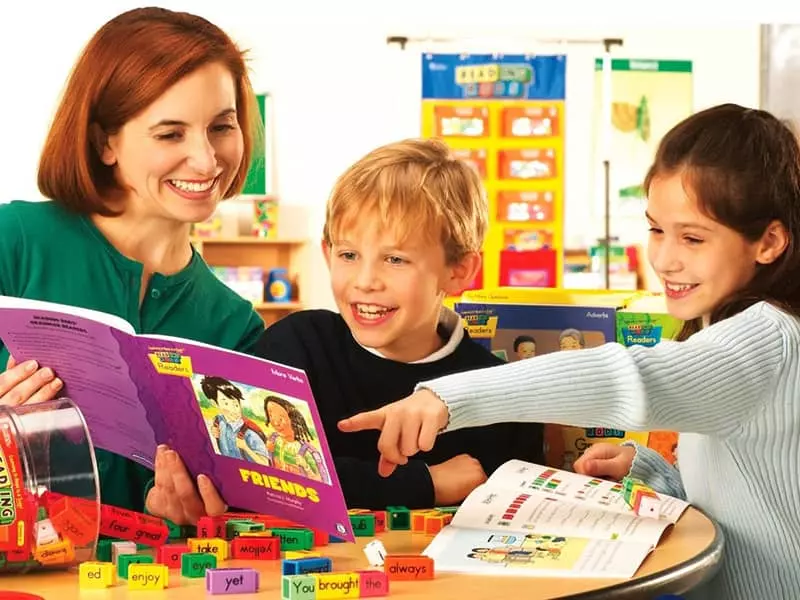
English education for children should be presented in a fun, engaging and age-appropriate way. The early years, when children are prone to learning a language, are an ideal period for them to easily grasp a new language. The methods and approaches used in this process not only make it easier for children to learn English, but also make them love the language. Here are some key points on what the ideal English education for children should look like:
It Should Be Fun and Interactive
It is of great importance that the lessons are fun in order to attract the attention of children in their learning processes. It is possible to make the process of learning the language fun for children by using activities such as games, songs, stories and cartoons in English education. Game-based education helps children make what they learn more permanent and allows them to enjoy learning the language. In addition, animated and visual content attracts children's attention and facilitates the learning process.
Visual and Auditory Materials Should Be Used
Children are prone to concrete and visual learning. For this reason, materials such as picture books, visual cards, videos, songs and animations should be used in English education. Such materials allow children to learn new words faster and help them better grasp their meaning. Visual-assisted learning allows children to easily remember what they have learned and use language effectively.
A Natural Language Environment Should Be Provided
In language learning, it is a great advantage for children to experience English in a natural environment. By being in an English-speaking environment, children develop their language comprehension and speaking skills. For example, activities such as English conversation groups, workshops, or English language camps help children practice and learn the language naturally. In addition, using English words in the family or bringing children into contact with English content also supports language development.
Speaking and Listening Should Be Weighted
English education for children should focus on improving speaking and listening skills rather than memorizing grammar rules. Lessons should be organized with a focus on speaking so that children can express themselves and practice speaking English. Simple dialogues, everyday speech patterns, and basic expressions are taught to give children the courage to speak English. Listening activities, on the other hand, help children become familiar with pronunciation and words.
Should Be Short and Attention-Grabbing Lessons
Since children's attention spans are shorter than adults, English lessons should be kept short and attention-grabbing. Intensive and effective lessons in as little as 20-30 minutes allow children to learn without losing interest. In the learning process, the topics should be covered with content appropriate for the age of the children. Children are more active in short-term, active lessons with different activities.
Vocabulary Should Be Improved
While learning English, efforts should be made to improve children's vocabulary. Children should be taught words starting from basic topics such as objects, animals, colors, numbers that they will encounter in daily life. When vocabulary learning is supported by games and visuals, children learn and remember new words more easily. It should also be shown how to use the learned words in sentences.
It Should Be Supported by Social and Cultural Activities
English education should not be limited to grammar and vocabulary teaching. Social and cultural activities are also very important for children to improve their language skills. Activities such as theater plays, singing competitions, and English game days organized for children enable children to use the language in social situations. Such activities allow children to practice the language and increase their self-confidence.
It Should Be Suitable for Individual Needs
Every child's learning pace and style is different. For this reason, methods and materials suitable for the individual needs of children should be used in English education. Instructors should organize lessons in accordance with their personal skills, taking into account the developmental levels of the children. Children's learning processes should be closely monitored and additional support should be provided when necessary. Thus, children progress at their own pace and get more efficiency from the language learning process.
Positive Feedback Should Be Given
Children need encouragement and motivation in the language learning process. Positive feedback should be given to children in the lessons, their success should be rewarded and motivated. In order to increase the self-confidence of children, a constructive and supportive approach should be shown to the mistakes made. In this way, children are more committed to the English learning process and are willing to learn the language.
English education for children should be fun, interactive and appropriate for children's ages. An English education using the right methods contributes to children's natural learning and use of the language. An education program that will increase children's interest in English and enable them to use the language actively allows them to learn English more easily and permanently.


